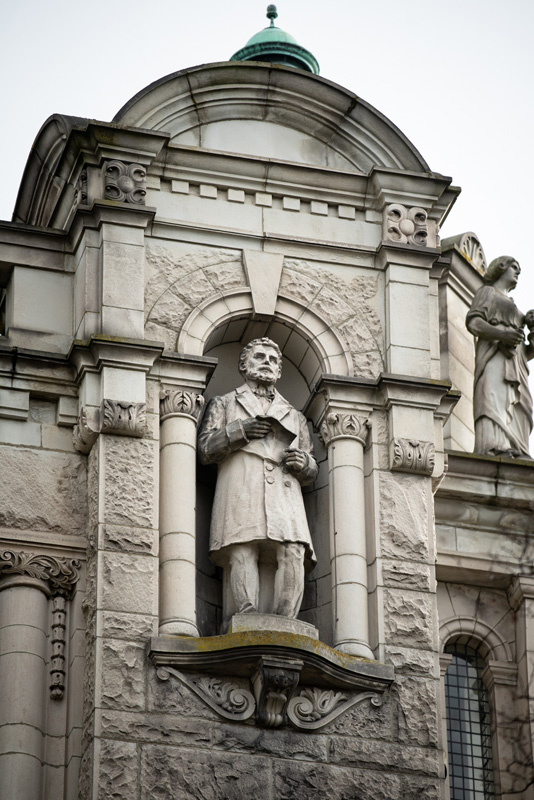Along the exterior of the Legislative Library are 14 statues of individuals who held prominence in the earlier history of the territory now known as British Columbia. One of those statues depicts Lord Edward Bulwer Lytton.
Edward Bulwer Lytton was born on May 25, 1803. In 1858, the year that the Colony of British Columbia was established, Lytton was appointed as British Secretary of State for the Colonies. As Secretary, Lytton took a great interest in seeing the colonies of western British North America thrive during a time when many officials in Britain were losing interest in the area. In fact, Lytton introduced the bill in the United Kingdom House of Commons that allowed for the creation of the Colony of British Columbia. In doing so, he was able to diminish the monopoly held by the Hudson’s Bay Company in western British North America.
To solidify Britain’s control over that of the Hudson’s Bay Company (HBC) in the area, Lytton pushed for a transcontinental railroad, disallowed any preferential policies made for the Company, and forced Governor James Douglas to sever any ties with the HBC. Despite the presence of the British Empire in the Northwest Pacific, there was still the possibility that the colonies of Vancouver Island and British Columbia might join the United States, as the U.S. was much closer to the colonies than any other British controlled territories. Wanting to avoid this, Lytton lobbied early on for the union of Vancouver Island and British Columbia, which eventually occurred in 1866. Edward Bulwer Lytton died on January 18, 1873, in Torquay, England, and is buried in London, England.
Aside from being a British politician and Secretary of State for the Colonies, Lytton was also a well-known writer. He originated the popular opening line "it was a dark and stormy night" in his novel Paul Clifford, as well as the famous phrase "the pen is mightier than the sword" in his play Richelieu; Or the Conspiracy.

